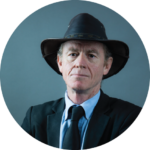“As a journalist from Burkina Faso, I have witnessed firsthand the devastating impact of terrorism on our communities, especially on the lives of women.”
These are the words of Burkina Faso reporter, Mariam Ouédraogo who delivered the Carlos Cardoso speech at the 19th African Investigative Journalism Conference (AIJC) in Johannesburg in November.
“It is with a heavy heart and a sense of profound responsibility that I stand before you today to share the stories of women who have suffered unspeakable horrors at the hands of terrorists,” she said.
Ouédraogo spent months reporting on the plight of women who have been raped by men she described as Islamic State terrorists in her country. The first threat she faced was from the men, who had prevented the women from seeking medical care or reporting the crimes. In other cases these attackers had intimidated villagers ensuring they remained silent about the use of sexual assaults which is a war crime.
Ouédraogo told a hushed conference room at Wits University that she was particularly affected by the story of a young girl who was raped by a terrorist who then subsequently tried to abort the pregnancy. The girl was unsuccessful in her attempt and she died in childbirth.
“These are not just numbers or statistics; they are mothers, daughters, sisters, and friends whose lives have been irrevocably shattered,” said Ouédraogo.
“Each story is a stark reminder of the cruelty and inhumanity that still exists in our world.”
Ouédraogo also spoke of a woman who was raped by the IS group men, and then became pregnant. She tried but was denied an abortion and she eventually committed suicide instead.
Ouédraogo says that reporting on these stories took a toll on her own mental health. She developed post-traumatic stress disorder, which manifested itself in symptoms such as insomnia, nightmares, and anxiety.
She also says that she felt isolated and unsupported by her colleagues and the media organizations she worked for, and that she was unfairly being asked to bear the burden of the victims’ suffering alone.
“Despite these challenges, I believe it is our duty as journalists to give a voice to the voiceless and shine a light on these dark corners of human experience,” said the West African journalist.
“We must be the beacon of hope and change, advocating for the rights and dignity of every individual affected by such heinous crimes.”
Ouédraogo Burkina Faso Maria,eventually took a break from reporting to seek treatment for her Post Traumatic Stress Disorder (PTSD) and was able to return to work, but she says that she is still struggling with the effects of her experiences.
She has called for solidarity among journalists and media organizations and said there should be a greater focus on the mental health of journalists, who are often exposed to trauma in the course of their work.
“Today, I urge you all, as fellow journalists and members of the global community, to join me in this fight,” she said “let us work together to bring these stories to the forefront of global consciousness, let us stand in solidarity with the victims and survivors, and let us commit to a world where no woman has to endure the pain and suffering inflicted by such acts of terror.”
Ouédraogo is a recipient of the Bayeux-Calvados Award for War Correspondents, which is one of the most prestigious awards in journalism.
She has also received the Marianne Prize, which is awarded to journalists who have made significant contributions to the defense of human rights and is a member of several professional organizations for journalists, including the Association of Journalists of Burkina Faso and the International Federation of Journalists.
Watch the full video here. [WARNING: Distressing Content]

